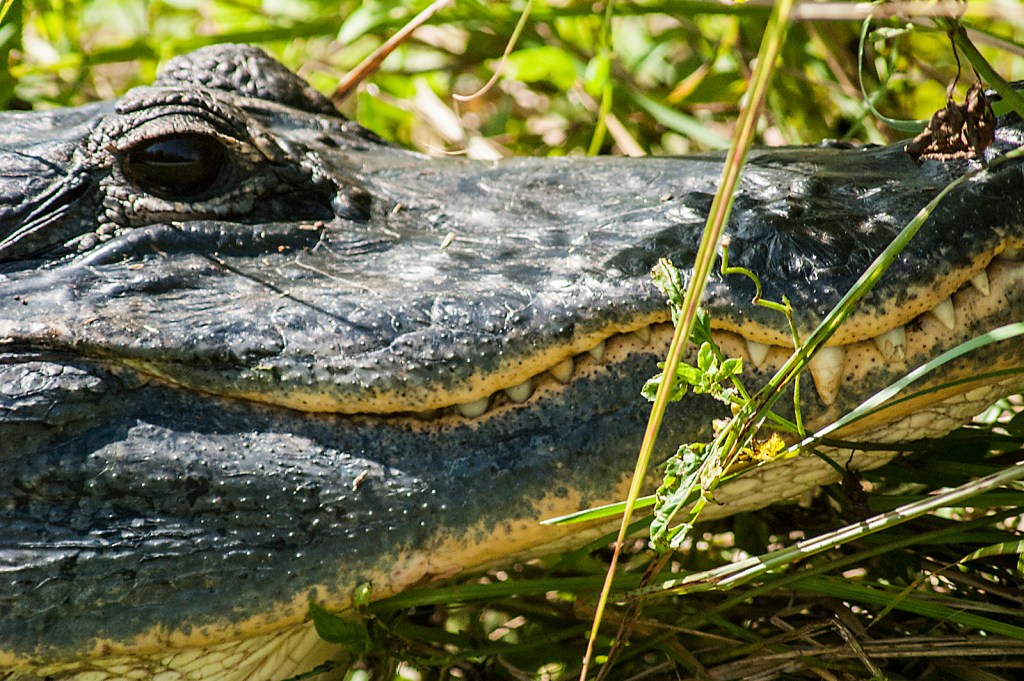State DNR: Poaching biggest threat to alligators in Georgia
Published 11:00 am Friday, September 27, 2013

- Watching a nature special on the Discovery Channel, you could potentially see an alligator looming in a river as a gazelle drinks from its bank. When without notice, the alligator leaps from the water, chomping onto the gazelle, and pulling it into the water, never to be seen again.
Watching a nature special on the Discovery Channel, you could potentially see an alligator looming in a river as a gazelle drinks from its bank. When without notice, the alligator leaps from the water, chomping onto the gazelle, and pulling it into the water, never to be seen again.
These are the images that sometimes come to mind when thinking about those reptilian creatures. However, in Georgia, alligators are statistically not very dangerous.
“From 1980 to May 2006, there only have been eight reported cases of alligator attacks on humans in Georgia,” according to the Georgia Department of Natural Resources Wildlife Resource Division. “There have been no fatalities. Six of these incidents happened as a result of the human stepping on or otherwise contacting a submerged alligator. The remaining two incidents were a result of the alligator mistaking the human for prey.”
Major Stephen Adams with the DNR Law Enforcement Division said that he only knew of one Georgia case where an alligator killed a person and that was because the person was squatting next to a river, and the alligator mistook the person for food.
He said that alligators are not aggressive towards humans; they will not chase you. But if you feel that your life is threatened, Adams said, you have the right to protect your life. Keep in mind that the DNR also has the right to investigate the incident, and if found guilty of poaching, you will be charged with a misdemeanor.
If an alligator is seen on private property, the DNR recommends contact the agency — (800) 241-4113 — so the animal can be removed by a licensed nuisance alligator agent-trapper. The DNR legally removes about 450 nuisance alligators annually in Georgia. A nuisance alligator “exhibits aggressive behavior toward humans, shows symptoms of some debilitating illness or injury, inhabits recreational waters intended primarily for swimming or attacks domestic animals.”
At the turn of the 20th century, the number of alligators in America was dwindling rapidly because they were losing their habitat and because they were being hunted without regulation. If this process continued, then there would not be an alligator around today.
“Alligators were listed as endangered in 1967,” according to the DNR. “This status, combined with proactive management and law-enforcement efforts by wildlife professionals, allowed alligator populations to rebound and they now flourish over most of their historic range. Alligator populations increased to the point that their protected status was down-listed in 1987 allowing greater flexibility to manage populations.”
Today, nuisance trappers are the biggest threat to the alligator population. These are people who hunt or trap alligators without a hunting license; they are also called poachers. Adams said people caught with an alligator that was killed illegally face a misdemeanor charge and penalties as stiff as a $1,000 fine and 12 months in jail, or as light as a $50 fine; this just depends on the severity of the violation.
Georgia DNR advocates legal alligator hunting by asking people to apply for an alligator hunting license, at www.ga.wildlifelicense.com/start.php
These licenses are distributed to qualified applicants at random, and are limited by zone. Zone Four consists of Berrien, Brooks, Cook, Lanier, Lowndes, and five other counties; this zone issues 85 alligator hunting licenses annually. Echols County is in Zone Six with eight other counties, and it is issued 100 licenses annually.
Every alligator hunting license allows one kill per season. The selected hunters will receive one tag to implant on the alligator carcass which must be over four feet long. The DNR describes alligator hunting as “unlike any other hunting experience you can pursue in Georgia,” and the agency encourages people to apply for applications to participate in Georgia’s alligator hunting season.
Alligator season started Sept. 7 and continues through Oct. 6.
There are approximately 200,000 to 250,000 alligators in Georgia. They live up to 60 years in captivity, but in the wild they rarely reach 50. They enjoy marshes, swamps, rivers, farm ponds, and lakes, but are sometimes found on roadways and golf courses, or in ditches, neighborhoods, drainage canals, or swimming pools.
Alligators are beneficial to the environment because they help shape and modify habitats by maintaining the balance of species within their habitat. They also dig holes during times of drought which concentrates the water helping themselves and other plants and animals survive in that area.
The Georgia DNR requests that people turn in poachers because a poacher is someone who “steals wildlife that belongs to you and all other Georgians. Poachers rob you of recreational opportunities.” There are three ways to turn in a poacher, by phone (800) 241-4113; by email www.georgiawildlife.com/TIPemail; or by mail at 3423 Piedmont Road, NE, Suite 540, Atlanta, Ga. 30305.




